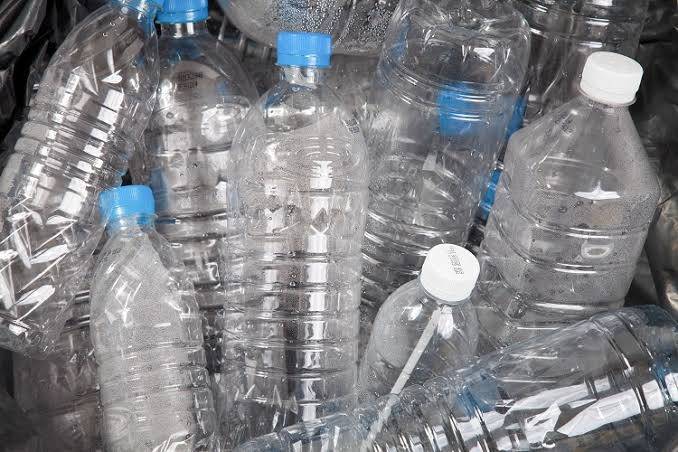Assam state government announced the prohibition of single-use plastic water bottles carrying less than one litre. This groundbreaking ban is set to be enforced from the auspicious date of October 2, signifying the state’s unwavering commitment to forging a greener and more sustainable path ahead.
With a firm resolve to combat the menace of plastic pollution and its catastrophic impact on the ecosystem, Assam has taken up the gauntlet to eliminate plastic waste from its root cause. The decision to clamp down on single-use plastic water bottles is a crucial stride in this commendable mission.
The insidious repercussions of plastic pollution have reverberated across the planet, inflicting dire consequences on human health, marine life, and wildlife alike. As the environmental perils of plastic waste continue to escalate, the Assam government recognizes the urgent need to address this issue head-on, particularly the alarming pollution of rivers, lakes, and other natural landscapes often caused by discarded single-use plastic water bottles.
The ban primarily targets single-use plastics, specifically focusing on water bottles – products designed for one-time use, only to linger in the environment for centuries due to their non-biodegradable nature. By taking this progressive stance, Assam aims to pave the way for a cleaner, healthier, and more sustainable future, leaving behind a lasting legacy for generations to come.
In a resolute move towards safeguarding the environment, the Assam state government, under the dynamic leadership of Chief Minister Himanta Biswa Sarma, has announced a game-changing measure – the prohibition of single-use plastic water bottles carrying less than one litre. This groundbreaking ban is set to be enforced from the auspicious date of October 2, signifying the state’s unwavering commitment to forging a greener and more sustainable path ahead.
With a firm resolve to combat the menace of plastic pollution and its catastrophic impact on the ecosystem, Assam has taken up the gauntlet to eliminate plastic waste from its root cause. The decision to clamp down on single-use plastic water bottles is a crucial stride in this commendable mission.
The insidious repercussions of plastic pollution have reverberated across the planet, inflicting dire consequences on human health, marine life, and wildlife alike. As the environmental perils of plastic waste continue to escalate, the Assam government recognizes the urgent need to address this issue head-on, particularly the alarming pollution of rivers, lakes, and other natural landscapes often caused by discarded single-use plastic water bottles.
The ban primarily targets single-use plastics bottles, specifically focusing on water bottles – products designed for one-time use, only to linger in the environment for centuries due to their non-biodegradable nature. By taking this progressive stance, Assam aims to pave the way for a cleaner, healthier, and more sustainable future, leaving behind a lasting legacy for generations to come.
Why water plastic bottles are danger?
Plastic bottles have become ubiquitous in modern life, offering convenience and portability for carrying beverages and liquids. However, their widespread use and disposal practices have raised concerns about their environmental and health impacts. Plastic bottles pose significant dangers to our ecosystems, wildlife, and human health, making them a pressing issue that demands attention and action.
One of the primary dangers of plastic bottles lies in their contribution to plastic pollution. Due to their lightweight nature and inefficient recycling rates, plastic bottles often end up in landfills or, worse, as litter in natural environments. These discarded bottles take hundreds of years to decompose, persisting in the environment for generations. As they degrade, they release harmful microplastics, tiny particles that can infiltrate soil and water sources, further contaminating ecosystems.

Plastic bottles that find their way into oceans and waterways pose a severe threat to marine life. Marine animals such as seabirds, turtles, and marine mammals mistake plastic bottles for food, leading to ingestion and entanglement. Ingested plastic can cause blockages in digestive systems, leading to malnutrition and even death. Additionally, animals can get entangled in discarded bottles or the plastic rings used to package multiple bottles, resulting in injury or drowning.
The production and disposal of plastic bottles also have a significant carbon footprint. Manufacturing plastic bottles requires the extraction and processing of fossil fuels, contributing to greenhouse gas emissions and exacerbating climate change. Additionally, the recycling process itself consumes energy and resources. Unfortunately, despite efforts to promote recycling, a considerable percentage of plastic bottles still end up in landfills or incinerators, perpetuating the cycle of environmental harm.
Moreover, the dangers of plastic bottles extend beyond the environmental realm and affect human health. Studies have indicated that certain chemicals used in plastic bottle production, such as bisphenol A (BPA) and phthalates, can leach into the contents of the bottles, particularly when exposed to heat or sunlight. These chemicals are endocrine disruptors, meaning they can interfere with hormone function and potentially lead to adverse health effects, including reproductive issues and developmental problems.
Inadequate waste management of plastic bottles in many regions exacerbates the danger they pose. Improper disposal can lead to littering, clogged drainage systems, and increased risk of flooding during heavy rains. In some areas, plastic bottles are irresponsibly burned, releasing toxic fumes and further contributing to air pollution.
To address the dangers posed by plastic bottles, a comprehensive approach is required. Individuals can play a crucial role by reducing their reliance on single-use plastic bottles through the adoption of reusable alternatives such as stainless steel or glass bottles. Governments and organizations need to implement policies that promote waste reduction, improved recycling infrastructure, and the development of sustainable alternatives to plastic bottles.
In conclusion, plastic bottles present a multifaceted danger to our environment, wildlife, and human health. Their persistence in the environment, contribution to plastic pollution, impact on marine life, and potential health risks due to chemical leaching are critical issues that must be addressed. By adopting more sustainable practices and embracing reusable alternatives, we can mitigate the dangers posed by plastic bottles and work towards a cleaner, healthier, and more sustainable future.










